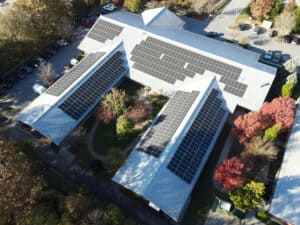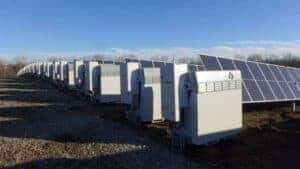Do you know that your electronic appliance is wasting energy even after you turn it off? The energy consumed during the time when appliances are off is called phantom loads.
The concept of phantom load is not new. It has been around for years. If you are not aware of it, this blog is written for you! Keep reading and we will tell you everything you need to know about phantom loads and how to reduce them.
What are Phantom Loads?
As mentioned above, phantom loads refer to the energy consumed by your electronic appliance after you turn it off. In most cases, we leave our offices without unplugging electronic appliances. We simply turn them off, and then shut the door.
As a result, during the time we are not there, these electronic appliances are still eating electricity even though they don’t need to.
How Much is Your Business Wasting?
According to Colorado Springs Utilities, “the U.S. Department of Energy reports that 20% of our electric use goes to phantom loads.” If you leave your computer on all the time, even if it is in sleep mode, it will still cost over $87 each year, according to Native Energy.
If $87 doesn’t sound a lot to you, think about everything else in your office: speakers, phones, printers, chargers, air conditioners etc. Even when you’re not using appliances, most of them have a screen or a light that will be kept on once they are plugged in.
And if you have more than one employee, the amount of these devices also increases. When everything adds up, your business may be spending a few hundred or even a few thousand more on electricity.

How to Reduce Phantom Loads
It is never too late to take action to reduce phantom loads. There are some simple steps you can take to save money.
- Find out which electronic appliances are consuming energy even after office hours.
- Unplug electronic appliances that consume energy after work.
- Turn off computers instead of keeping them on with sleep mode.
- If it is not practical to turn off some appliances, such as phones, try to replace them with Energy Star devices to reduce energy costs.
- Try to use renewable power sources, like solar energy, for your business.
Besides taking these simple steps, it is also important to check the energy consumption of your office buildings periodically. By conducting an energy audit, you will have a better understanding on the energy usage of your business. Once you have a full understanding of your building’s energy use, you’ll be able to take effective actions to further reduce energy costs.
We also provide other ways to help you reduce utility costs here at EnergyLink. If you believe phantom loads are an issue for your business, or if you would just like to reduce your energy costs overall, feel free to contact us here to schedule a free consultation with us.






